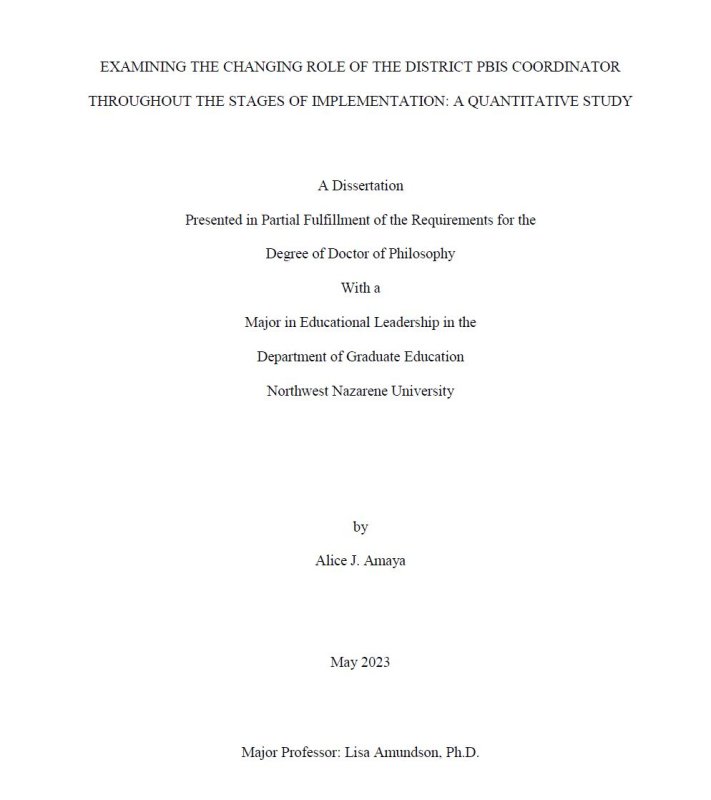- Resource Types
- Resource Languages
- Institutional Repository
 Visit the home page
Visit the home page
About Site Language
WHDL is viewable in multiple languages. Use the pull-down menu to select a language to view the site.
I changed my language, but I’m still seeing resources in the other languages?
If a resource or text has not been translated into your selected language, it will appear in the initially added language. We are always looking for help translating these resources. If you can help, contact us!
WHDL - 00018893


click to copy
Amaya, A (n.d.). Examining the changing role of the District PBIS Coordinator throughout the stages of implementation: A quantitative study .
Amaya, AliceExamining the changing role of the District PBIS Coordinator throughout the stages of implementation: A quantitative study . , n.d.
Amaya, AliceExamining the changing role of the District PBIS Coordinator throughout the stages of implementation: A quantitative study . , n.d.
Amaya, AliceExamining the changing role of the District PBIS Coordinator throughout the stages of implementation: A quantitative study . , n.d.
District systems supporting the school-level implementation of Positive Behavioral Interventions and Supports (PBIS), a multi-tiered framework organizing the delivery of a continuum of evidence-based practices promoting positive student social, emotional, and behavioral outcomes, are critical to its success. While literature recognizes the district PBIS coordinator’s role as a contributing factor to the successful implementation of PBIS in schools, there is little clarity regarding how district PBIS coordinators operationalize their role throughout the distinct implementation stages. The purpose of this quantitative study was to clarify the role of the district PBIS coordinator by examining the amount of time district PBIS coordinators spend on common functions of their role across the distinct stages of the implementation process in the context of the leadership, organization, and competency mechanisms known to drive successful implementation. The findings from descriptive and inferential measures, including the Kruskal-Wallis omnibus H-test, revealed that various functions of the district PBIS coordinator role change across the implementation stages. Descriptively, district PBIS coordinators spend more time on various leadership functions when first installing the initiative in a district compared to subsequent implementation stages. District PBIS coordinators also spend significantly different amounts of time on various competency functions of their role related to the evaluation and continuous improvement of training and coaching systems across the implementation stages, with the amount of time spent increasing as district implementation matures. This study’s findings inform professional development planning at the local and state levels, technical assistance offerings, and personnel decision-making related to the district PBIS coordinator role.
This material is used by permission of the rightsholder in accordance with the terms of the relevant content release. As a user, you have permission to use this content and download a copy for non-commercial use only. Downloading multiple quantities of this resource is expressly forbidden.
155 Resources
1993
2017
2018